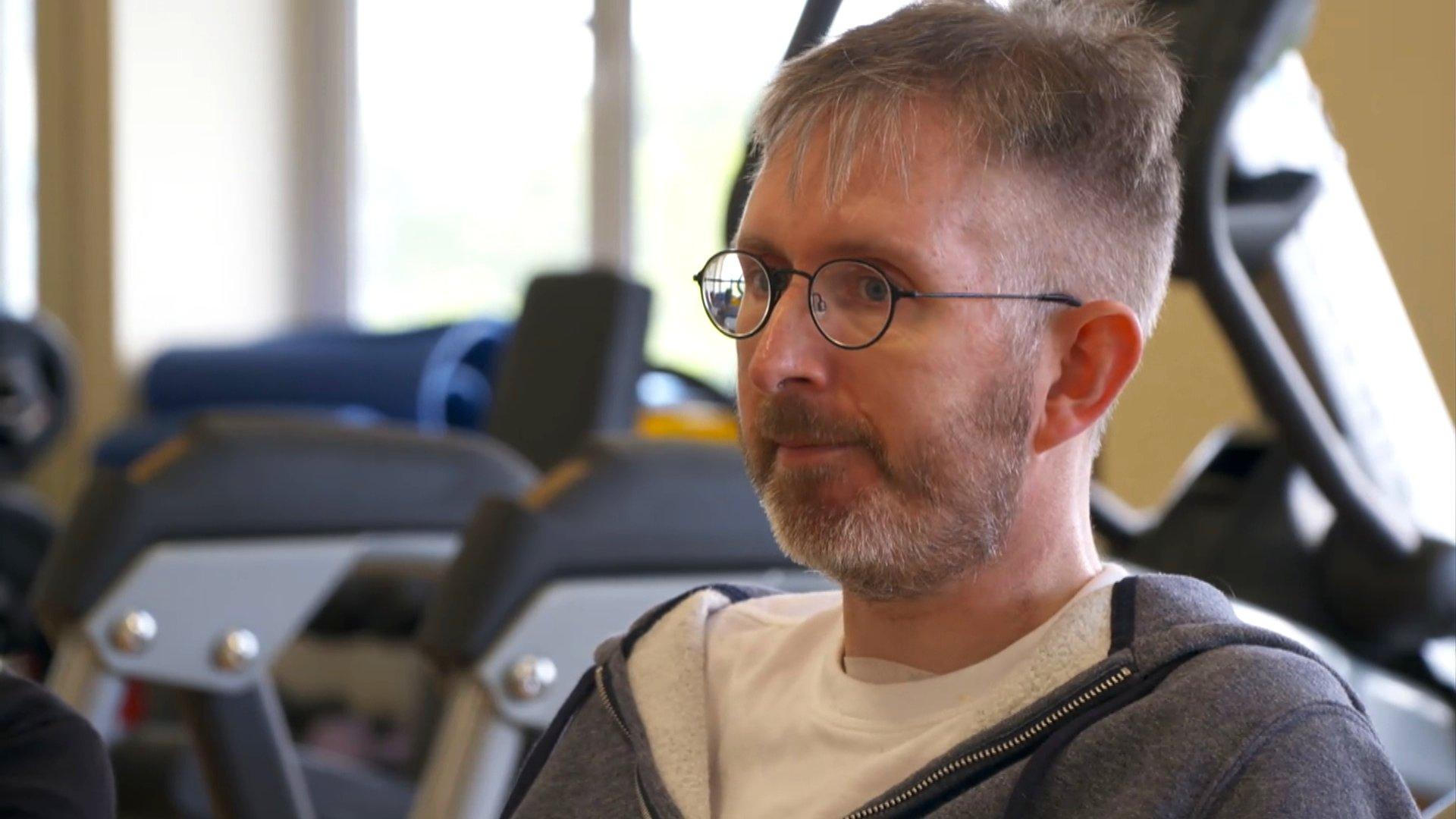Covid ICU: A reality check on the virus's second wave
- Published

The number of people in Aberdeen's ICU has risen but it far from being worst hit
Aberdeen is not a Covid hotspot yet the pressure on hospital and intensive care staff is still starting to show.
The patient count at Aberdeen Royal Infirmary (ARI) is not as high as some of Scotland's worst-hit hospitals but numbers are increasing.
We spent less than an hour in "pod 1" of ARI's Covid ICU and it was a total reality check on the effect of the second wave of the virus.
Eighty-three-year-old Meg Thomson is one of 11 patients being treated there.

Meg, 83, says she does not give up easily
Against the constant hiss of oxygen and the beeping of monitors, Meg tells me she doesn't know where she contracted the virus or how she ended up in ICU but, with grit and stoicism, she is determined to get better.
"I dinnae give up very easily," she says. "I've got my ups and downs but I feel positive."
In the neighbouring bed, 65-year-old Dot Bright says she started feeling unwell just over a week ago. After deteriorating rapidly, she was admitted to the ICU.
"The night before I was brought in here, I thought I was finished," she says
"It's the biggest scare I've had in my life. Take it serious."

Dot says Covid was the biggest scare of her life
In the last month, the number of Covid patients in hospital have doubled and the staff in ICU know that means there will be more needing critical care in the next few weeks.
Working 12-hour shifts in visors, gloves, gowns and masks is hot and uncomfortable.
Every time you enter or leave "the pod" the protracted routine of donning and doffing must take place. And that goes for the nurses and doctors as well as domestic staff bringing in equipment or taking the bins away.
Chloe Burdett has been an ICU nurse for three years and she says everyone is tired and trying to stay motivated.
"To know that people are so unwell, when we thought we'd gotten over that, it's very difficult to see that again and know it's still out there and it's still a threat to everyone," she says.

Nurses have to work long shifts in full PPE
Helen Paddon, the head nurse for critical care, says it has been the most difficult year of her nursing career.
"The nursing staff are working longer hours than they should do, in full PPE," she says.
Staff here say they have been lucky to escape the full impact of the second wave felt in other parts of Scotland.
But a specialist national unit, which is based in the Aberdeen ICU, means they treat some of the sickest Covid patients in Scotland.
The ECMO (Extracorporeal membrane oxygenation) unit, "pod 2", has special machines that take on the work of the lungs. It is often the younger people who will be put on ECMO as they are the most likely to survive.
Dr Iain Macleod heads up all the hospital's critical care. He tells me that better treatments this time mean more people can avoid intensive care but those who do come tend to stay for some time.
"What we're seeing this time is more of a slow burn, patients are here for longer, they remain very sick," he says.
And like all hospitals this time round, other work continues.
For the critical care team that means running and staffing two intensive care units, one for Covid patients and one for non-Covid.
"Intensive care is an emotionally-charged environment but this year is like nothing I have ever seen before," Dr Macleod says.
"Our team have been working incredibly hard over the last six months and there is no end in sight."

Dr Iain Macleod said fewer people were needing ICU but they were staying for longer
Visiting is not allowed in order to limit the number of people in the hospital but I was granted rare access, alongside a camera operator, because the staff felt it was important that people understood just how serious the threat of this virus is.
And it is distressing to see.
Dot and Meg have turned a corner but there are others in the unit who might not make it.
The staff have to deal with that and they have to deal with working in full PPE, getting used to smiling with their eyes as they comfort frightened patients.
They also have to deal with their own fears of the virus, their own stresses of seeing people so critically ill, and taking that home at the end of a busy shift to everyday family life.
Dot tells me: "The people in here can't be more helpful. They stand here for four or five hours without a break. They're here with you all the time."
- Published31 July 2020
